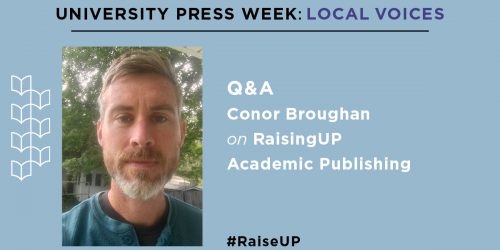University Press Roundup
Welcome to our weekly roundup of the best posts from the blogs of academic publishers! As always, if you particularly enjoy something or think that we missed an important post, please let us know in the comments.
Here in NYC, the mayor’s office and teachers union have been in the news this week, and not for positive reasons. Fittingly, this week Voices in Education, the blog of Harvard Education Publishing, has an excerpt from The End of Exceptionalism in American Education by Jeffrey R. Henig in which he details the struggle between Michael Bloomberg and the NY City Council over teacher layoffs in spring of 2011.
This week at the OUPblog, Tim Bayne has a fascinating guest post in which he discusses how belief-formation affects the way we behave, and, as a consequence of this connection, how we should judge those who form beliefs that are generally seen as harmful or evil. He takes the examples of Khalid Sheikh Mohammed and Anders Breivik as a way to get a true-life handle on this problem.
The burning cross is one of the symbols most associated with the Klu Klux Klan. However, in an interview with the UNC Press Blog, Edward J. Blum and Paul Harvey explain that the relationship between the KKK and religion was a complicated one, and one that didn’t arise until the 1910s or 1920s.
The annual AHA conference took place at the beginning of January, and this week the Harvard University Press Blog has a piece looking at “The Public Practice of History in and for a Digital Age” panel, and, in particular, Michael Pollan’s challenge to professional historians to embrace the narrative techniques that allow popular histories to make bestsellers lists over more academic works.
The Violence Against Women Act (VAWA) was allowed to expire at the end of 2012. At From the Squre, the NYU Press Blog, Leigh Goodmark considers what the lapse of VAWA means, and suggests that Congress use the delay to refocus the legislation to allow VAWA to be revolutionary once more: “The criminal justice response to domestic violence has had eighteen years of dedicated funding with underwhelming results. The time has come to think more creatively about how to achieve justice for people subjected to abuse. The delay in passing VAWA provides us with that opportunity.”
At the Yale Press Log, Mark Harrison has a guest post looking back at the mass protests against South Korean President Lee Myung-bak in the summer of 2008. At the time, South Korean fears of tainted American beef were running high, and President Lee’s decision to lift the country’s ban on imported beef from America sparked discontented citizens into protests against his administration.
At Fordham Impressions, the blog of Fordham University Press, Matthew Isham takes issue with the idea that political media bias is a new phenomenon. While quoting commentators on both ends of the political spectrum who have recently blamed media outlets for various political wrongs, Isham looks back over the history of media in the US to trace the idea of biased media up to the present.
“How do you write about somebody so famous in American history that a rest stop on the New Jersey Turnpike, a Maryland parkway, and elementary schools in at least nine states are named after her?” At the JHU Press Blog, Marian Moser Jones discusses the challenges of writing about a well-known historical figure, Clara Barton, in her particular case. Most important, in Moser’s view, is “watch[ing] out for that “easy” button.”
Finally, we’ll wrap things up this week with a post from Deborah Vargas at the University of Minnesota Press Blog. In her guest post, Vargas discusses the music of the Chicano borderlands (complete with a Youtube soundtrack). She discusses an important lesson she learned while studying Chicana music: “before I could listen to Chicana singers of decades earlier, I had to learn how to listen for them.”
Well, that will do it for this week! We hope that you enjoyed this edition of our UP Roundup. As always, please post any thoughts in the comments. Thanks for reading!


